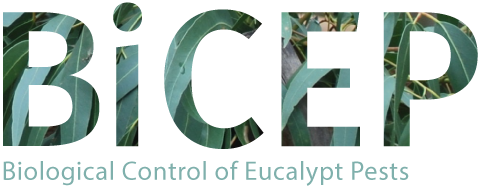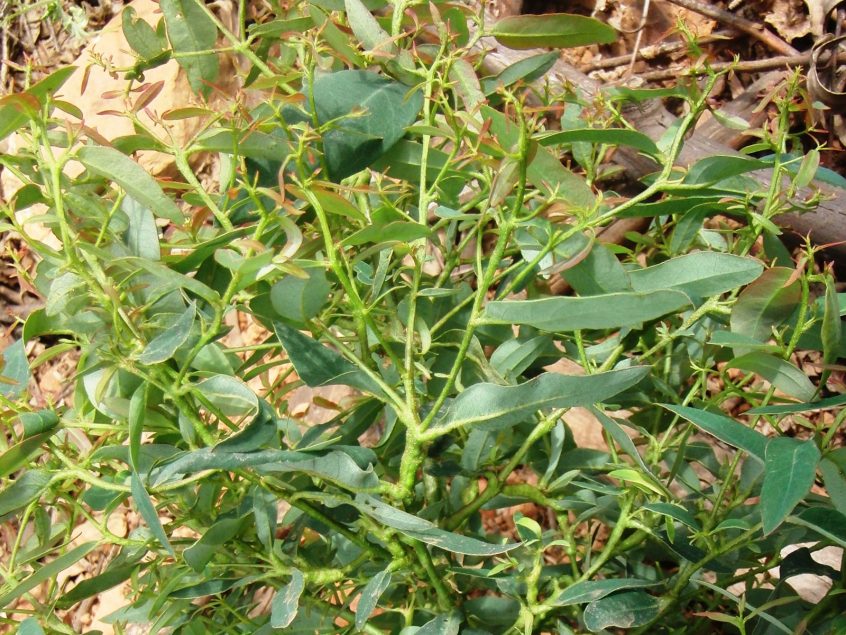The gall wasp Leptocybe invasa is a serious threat to the expanding eucalypt plantation industries in the Mekong region and its control is a high priority.
This project aims to help develop biological control of the gall wasp in the Mekong region, offering a low-cost and proven option to manage this exotic pest.
The gall wasp, an Australian-origin insect pest, threatens eucalypt plantations in the Mekong Region and worldwide.
Tree growers’ ability to control pests such as the gall wasp via conventional pest control is limited. Pesticides are costly, ineffective in the field and not environmentally sustainable, while resistant germplasm is costly and subject to the introduction of new pests and pathogens with different resistance mechanisms.
Classical biological control, as part of an effective integrated pest management strategy, is a low-cost and proven option to manage these pests in perpetuity, while promoting sustainable forest management.
The gall wasp has already been biologically controlled in several countries. The research focus for the Mekong region will build on this knowledge to control and test parasitoids in the region.
Although the gall wasp is the key insect pest threat to eucalypt plantations in the region, it is only one eucalypt insect spreading across the world. The project will increase the Mekong region’s capability to effectively and rapidly respond to threats, providing better economic, social and environmental outcomes for poorer rural communities.
Research
The key elements are:
- mapping the distribution of gall wasps and its associated parasitoids in Australia and the Mekong.
- selecting potential new parasitoid biocontrol agents from amongst those already employed elsewhere, testing these for specificity under quarantine conditions, and then releasing the new parasitoid and monitoring its establishment and effectiveness in the field.
Achievements
- The distribution of gall wasps and existing parasitoids has been mapped in each of the Mekong partner countries. The presence of two species of gall wasps in the region has been confirmed.
- We have identified that an Australian origin parasitoid, Quadrastichus mendeli, is widespread in the region and providing variable levels of gall wasp control.
- Networking between our partner countries has been enhanced significantly, as has awareness of the importance of forest health to overall plantation productivity.
- Capacity in the region in forest health surveillance, research, basic diagnostics and forest pest collection curation to assist in managing current and future problems has been significantly enhanced.
Sources: https://aciar.gov.au/project/fst/2012/091, https://aciar.gov.au/files/fst2012091.pdf
Learn more:
ACIAR: https://aciar.gov.au/aboutus
Research proposal: https://aciar.gov.au/project/fst/2012/091

